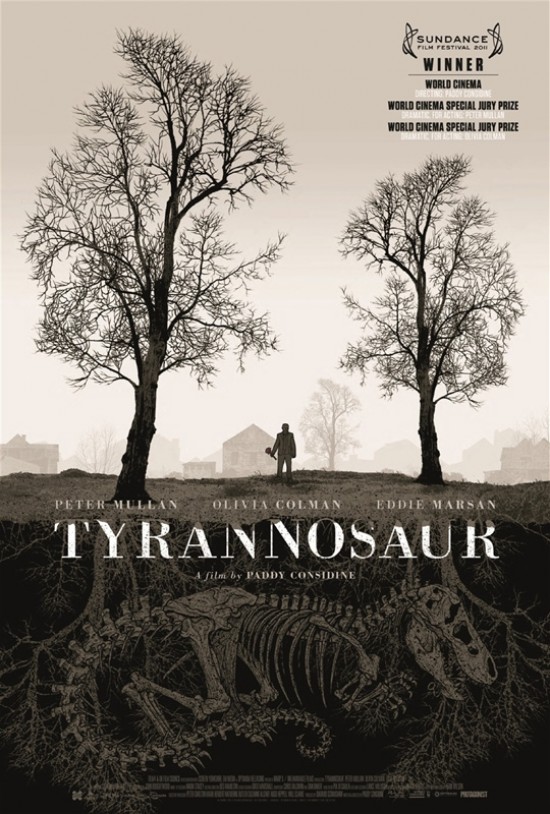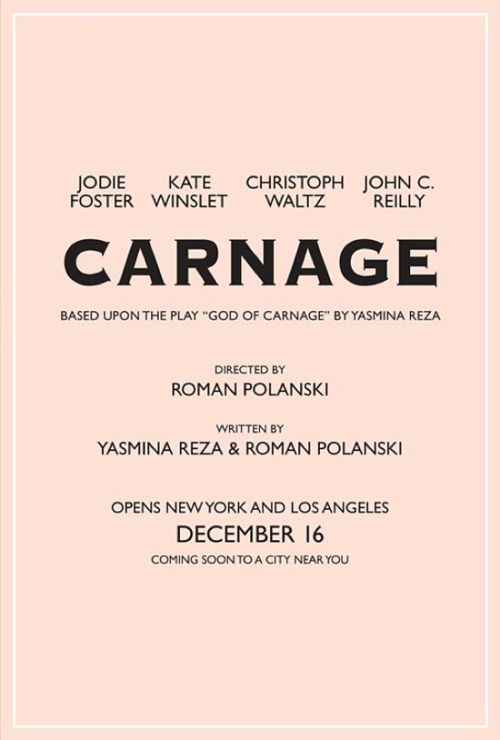by Gordon

Directed by: Peter Jackson
Released: 2010
Rating: PG-13 [mature thematic material involving disturbing violent content and images, and some language]
Runtime: 135 min.
Main Cast: Saoirse Ronan, Mark Wahlberg, Rachel Weisz, Stanley Tucci, Susan Sarandon
Rotten Tomatoes: 35% IMDB: 6.8/10

I looked forward to The Lovely Bones for considerable time prior to its release. It wasn’t helped much by a confusing North American release…first a limited one in mid-December, and then wide over a month later. But that aside, there it was…the new film by Peter Jackson, the reputable director of The Lord of the Rings trilogy and King Kong which, yes, I did like very much. Through trailers I was already aware it would be a departure for Jackson…though still appearing visually daring and creatively exploring, it would not be the sweeping, epic type of picture that Jackson’s won the world over in films past. The Lovely Bones, obviously, wouldn’t suit that type of picture.
Knowing a little about the book by Alice Sebold from which the film derives, the type of picture Jackson created seems a fairly successful rendering. I liked it…that much I can say confidently. It was a good movie. Certain elements shine. The storytelling was clever. The acting (especially from Saoirse Ronan and Stanley Tucci) was solid. The dreamlike sequences of life after death were thoughtful and imaginative. But when it was all over, I wasn’t buzzing with the telling aftertaste of a classic, memorable movie. And I’m not sure whether to direct my criticism toward director Jackson or author Sebold for that.
The story is set in a suburb of Pennsylvania in 1973, and Jackson does an impressive job of recreating the period throughout the movie. 14-year-old Susie Salmon (Ronan) takes a shortcut through a cornfield home from school one day, when a man from her neighborhood, George Harvey (Tucci), approaches her and lures her into an underground den he’s built. He goes on to rape and murder Susie, and with this Jackson decides to show little, focusing on the build-up of the heinous crime instead. It’s a commendable approach, but part of me feels that a more visceral depiction of the depths of Harvey’s evil nature might have aided the film’s supsense and intensity.
Confusing things slightly for the viewer, what we actually see is Susie escaping from the den after kicking Harvey in the face. She runs into town and sees her father Jack (Mark Wahlberg), who after being alerted by the police is using a photo to ask if anyone’s seen her. But he doesn’t see Susie. She then runs home to an eerily empty house, and then upstairs where she finds Harvey in a bathtub with blood in the sink. It’s then that she discovers she’s been murdered and, while I appreciated the supernatural turn, its execution seemed slightly sloppy.
Detective Len Fenerman (Michael Imperioli) is called in to investigate, but when they find Susie’s bloody hat at the scene of the crime, Susie’s family must accept their loss. Susie must also accept her own death, and she’s aided by the help of a girl she meets, Holly Golightly, who is also one of Harvey’s past victims. The pair traipse through a land called “the in-between”, a dreamlike, changing landscape that combines earthly elements and visions with those of the mind. Jackson craftily paints this imaginative picture, which becomes an added dimension of appeal, but there was an ambiguity to it that left me slightly confused.
Harvey is questioned by police, but successfully evades any suspicion. Susie’s mother Abigail (Rachel Weisz), under too much stress surrounding Susie’s death, leaves the home and works at a California apple orchard. Her eccentric mother Lynn (Susan Sarandon) replaces her in the home. Aided by previously undeveloped camera film that Susie left behind, Jack increasingly suspects Harvey as his daughter’s murderer. Following Harvey into the cornfield one night, he’s brutally attacked by a young man who, along with his girlfriend, believed Jack to be ambushing them. With her dad in the hospital, Susie’s sister Lindsey breaks into Harvey’s house when he’s not home to look for evidence. She finds it in the form of what could be called a “murder diary” that he’s hid in an upstairs bedroom. Harvey returns, however, and in a hold your breath scene, runs after Lindsey, through and out of his house, until she finds refuge in her own home.
It’s here, after a shining glimmer of hope and potential justice, that I believe the story misses the opportunity entirely. Lindsey enters her home to find her mother has returned after learning of her husband’s injuries. When all the viewer wants is for Lindsey to reveal her newfound evidence to everyone that matters (family and police), the story complicates things and effectively strips the previous scene of its momentum by overlapping it with the subplot of Abigail’s return home. Lindsey, possibly to protect the strains on her parents’ relationship, elects to give the book to her grandmother instead, though that reason doesn’t seem grand enough to trump exposing Susie’s murderer.
What happens with the evidence at that point is left unclear and untold. The story shifts to a giant sinkhole in the earth where Harvey begins to dump the chest containing Susie’s body before fleeing the area. By chance, Susie’s friend Ruth and her high school crush Ray are also by the sinkhole as this is taking place. In a bizarre series of events, Susie enters the body of Ruth, causing her to collapse. When Ray rushes to Ruth’s side, he discovers it’s Susie, and they share a kiss. With this, Susie’s apparent last wish fulfilled (which is somehow greater than her wish for her killer to come to justice), she returns to heaven, as if to redeem the fact that she was murdered in the first place. Her killer, we see some time later, does find justice, but cheaply so and in no way close to how the audience (if I can speak for) would hope.
I can’t complain too much about Jackson’s direction. He took a complex and in some ways conviluted story and told it the best way he saw fit, which wasn’t all bad. I think, then, my primary complaints need to be directed toward author Sebold who, despite a unique, thoughtful premise, didn’t connect the dots when it mattered in the end. But still Jackson, good-intentioned as he was, took perhaps equal responsibility when he signed on and helmed the feature. In short, it’s not bad, but it is an opportunity missed.











